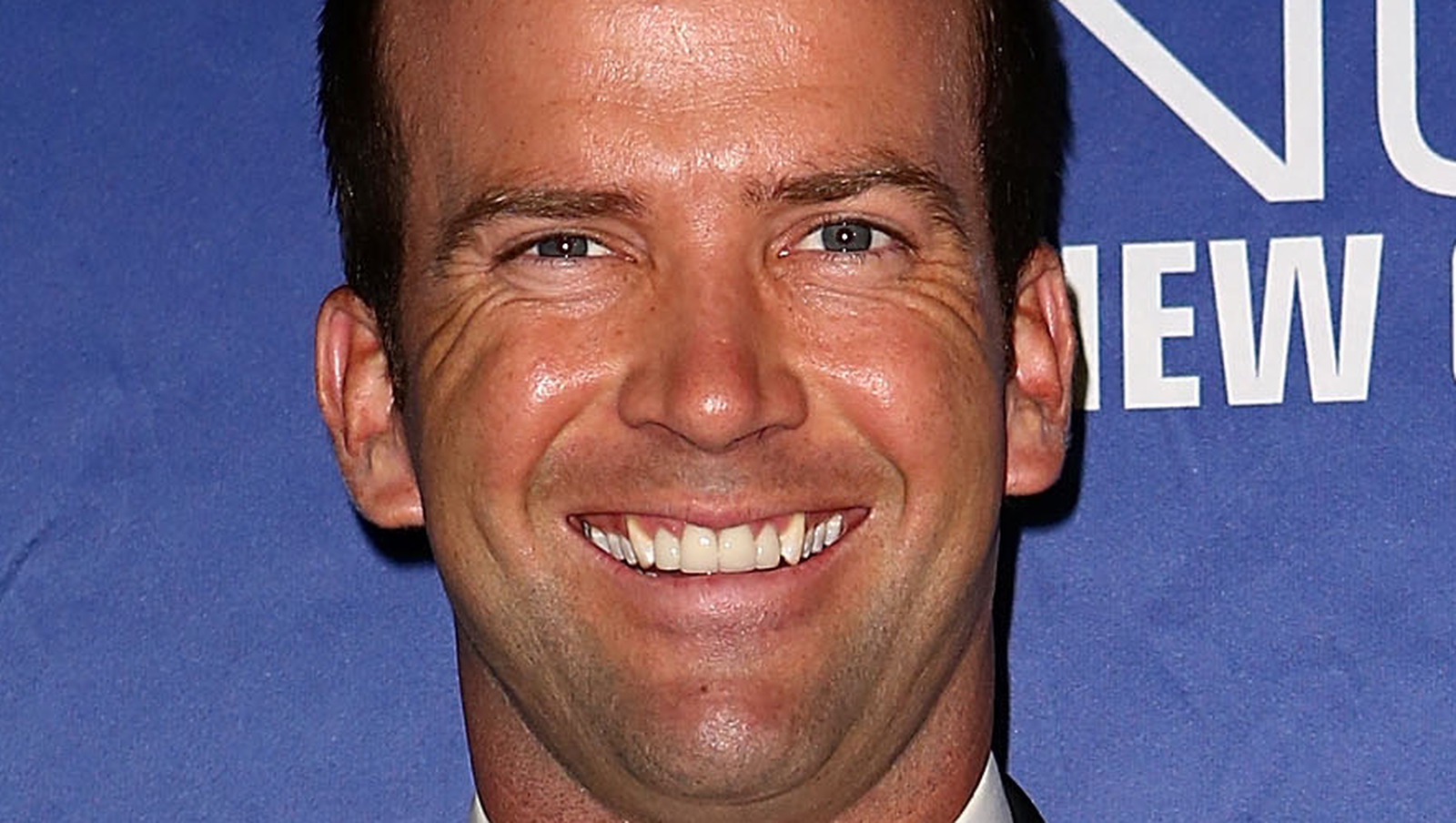Lucas Black's Illness: Understanding His Health Journey & Challenges
What do we truly know about the health challenges faced by those in the public eye, and how do we navigate the delicate balance between privacy and public interest? The stories of individuals like Lucas Black offer profound lessons in resilience, demanding both sensitivity and a commitment to factual accuracy.
The realm of celebrity health is often shrouded in a mix of speculation and genuine concern. When a public figure faces a health challenge, the world watches, often with a mixture of curiosity and empathy. However, the task of understanding and reporting on such sensitive topics requires a delicate touch. It necessitates a commitment to factual reporting, relying on credible sources like medical publications and official statements, while actively avoiding speculation and conjecture. This approach ensures that the narrative remains grounded in reality, respecting the individual's privacy while providing valuable insights.
This article aims to delve into the specifics of Lucas Black's health journey, exploring the impact of his illness on his life and career while highlighting his unwavering determination. We will navigate the complexities of his health struggles, focusing on the nature of his condition and the ways in which he has adapted and thrived. The goal is to provide a comprehensive understanding of the situation, offering insights into his personal life, the impact of his health on his career, and the support he has received from fans and loved ones.
- Debbii Dawson Net Worth Bio More Latest Updates
- Lou Diamond Phillips Net Worth 2024 Career La Bamba Success
| Category | Details |
|---|---|
| Full Name | Lucas York Black |
| Date of Birth | November 29, 1982 |
| Birthplace | Athens, Alabama, USA |
| Nationality | American |
| Occupation | Actor |
| Known For | Roles in "Sling Blade," "Friday Night Lights," "NCIS: New Orleans" |
| Health Condition | Multiple Sclerosis (Diagnosed in 2014) |
| Marital Status | Married (since 2010) to Maggie O'Brien |
| Children | 3 |
| Years Active | 1994 Present |
| Notable Works | Sling Blade (1996), Friday Night Lights (2004), The Fast and the Furious: Tokyo Drift (2006), NCIS: New Orleans (2014-2019), Fast & Furious films |
| Reference Website | IMDB - Lucas Black |
One of the most frequently asked questions surrounding Lucas Black is, "What is Lucas Black's illness?" While he has maintained a level of privacy regarding the specifics of his condition, reports indicate that he has faced significant health challenges. In 2014, it was revealed that Black had been diagnosed with multiple sclerosis (MS), an autoimmune disease affecting the central nervous system. This diagnosis was a turning point, significantly impacting his personal and professional life. The very nature of MS, with its unpredictable symptoms and varying degrees of severity, presented unique hurdles. The disease can manifest in numerous ways, causing fatigue, mobility issues, vision problems, and cognitive difficulties.
His health journey underscores the importance of health awareness, support, and resilience in the face of chronic conditions. It is a testament to the strength of the human spirit, highlighting the ways individuals can adapt, persevere, and continue to pursue their passions despite adversity. Understanding the complexities of chronic illnesses like MS fosters greater empathy, reduces stigma, and promotes a more inclusive society. It encourages a more informed and compassionate approach to healthcare and personal well-being.
Blacks career is marked by a series of roles that have resonated with audiences. His early work in films like "Sling Blade" showcased his natural talent, earning him critical acclaim. The role of Mike Winchell in "Friday Night Lights" further cemented his place in the industry. Black's ability to portray authentic characters with depth and nuance quickly endeared him to viewers. Later, his participation in the "Fast & Furious" franchise brought him to a global audience, solidifying his status as a recognizable face in the entertainment world. Even as his health challenges emerged, Black continued to work, displaying a commitment to his craft that is both inspiring and admirable.
- Ami Brown Net Worth Billy Brown More Alaskan Bush People Updates
- Michael Dubb Net Worth 2024 Real Estate Horse Racing Insights
The diagnosis of multiple sclerosis brought with it a new set of considerations. The unpredictable nature of the disease necessitated adjustments to his work schedule, travel, and overall lifestyle. Yet, Black demonstrated remarkable resilience. He adapted to the challenges, continuing to take on roles and projects. This resolve underscores his deep-seated passion for acting and his determination to pursue his career despite the obstacles.
The impact of MS is not merely physical; it also has profound emotional and psychological effects. The uncertainty surrounding the disease, the potential for fluctuating symptoms, and the need for ongoing management can all contribute to stress and anxiety. Black's ability to manage these aspects of his health and maintain a positive outlook is a testament to his strength of character. The support he has received from his family, friends, and fans has undoubtedly played a crucial role in helping him navigate these challenges.
The public's reaction to Black's health journey has been marked by empathy and admiration. Fans and followers have expressed their support through social media and other channels, acknowledging his talent and resilience. The outpouring of goodwill demonstrates the powerful connection between artists and their audiences, and the shared human experience of facing adversity. This level of support is a significant asset for individuals facing chronic illnesses, providing encouragement and a sense of community.
The experience of living with MS serves as a valuable lesson for everyone. It highlights the significance of maintaining a healthy lifestyle, seeking timely medical care, and fostering a supportive network. It underlines the importance of open communication, both with medical professionals and loved ones. Black's story demonstrates that with the right approach, it is possible to lead a fulfilling life even in the face of significant health challenges. It is a reminder that resilience, adaptability, and a positive attitude can make a world of difference.
His story also encourages reflection on the larger societal implications of chronic illnesses. Understanding the complexities of such conditions is a crucial step toward reducing stigma and promoting more inclusive healthcare practices. By raising awareness about conditions like MS, we can contribute to a more empathetic and supportive environment for individuals and families affected by these diseases. The aim is to encourage greater compassion, understanding, and effective treatments.
Its important to mention that the impact of MS is variable. Some people experience mild symptoms, while others face more severe and debilitating effects. This variability highlights the need for individualized treatment plans. Treatment strategies can include medication, physical therapy, occupational therapy, and lifestyle modifications. The goal is to manage symptoms, slow the progression of the disease, and enhance quality of life.
The medical communitys understanding of MS has advanced significantly in recent years. Research efforts are constantly pushing the boundaries of treatment options, and new therapies are continually emerging. Early diagnosis and intervention are considered crucial for optimizing outcomes. The ongoing pursuit of knowledge offers hope for those currently living with the disease and underscores the importance of continuing research in this area.
Beyond the medical aspects, the emotional well-being of people with MS is a crucial consideration. Mental health support, including therapy and counseling, can be incredibly beneficial. The ability to connect with others who share similar experiences can offer comfort, provide valuable insights, and decrease feelings of isolation. Support groups and patient advocacy organizations play a crucial role in this regard.
As we explore Black's health journey, the emphasis remains on factual reporting, drawn from reliable sources and avoiding speculation. This approach not only respects his privacy but also provides the audience with a clear, trustworthy picture of the situation. By focusing on verifiable information, we can ensure the narrative remains informative and sensitive. In turn, this ensures the focus stays on the individual's experiences and the valuable lessons that can be learned from them.
In conclusion, Lucas Black's story is a compelling example of resilience in the face of adversity. It offers crucial insights into the challenges of living with MS, the importance of a supportive network, and the remarkable capacity of the human spirit. It inspires reflection on the broader societal issues surrounding chronic illnesses and the significance of health awareness. The approach to reporting on his story serves as a model for covering the health journeys of public figures emphasizing accuracy, sensitivity, and a commitment to factual information.
Understanding the illness, its symptoms, and the pathways to recovery is critical. It highlights the need for health awareness, early diagnosis, and tailored treatment plans. It fosters a greater understanding of chronic illnesses, reducing stigma and promoting empathy and a more inclusive society. His path encourages open dialogue and knowledge sharing and emphasizes the importance of supporting and helping those affected by health challenges.
- John Vincent Base Jumping Legend The Untold Story Legacy
- Lewis Blacks Net Worth In 2024 Beyond Income Career

Understanding Lucas Black's Health Is Lucas Black Sick?

Understanding The Health Journey Of Lucas Black

Lucas Black Health A Comprehensive Look At His Wellness Journey